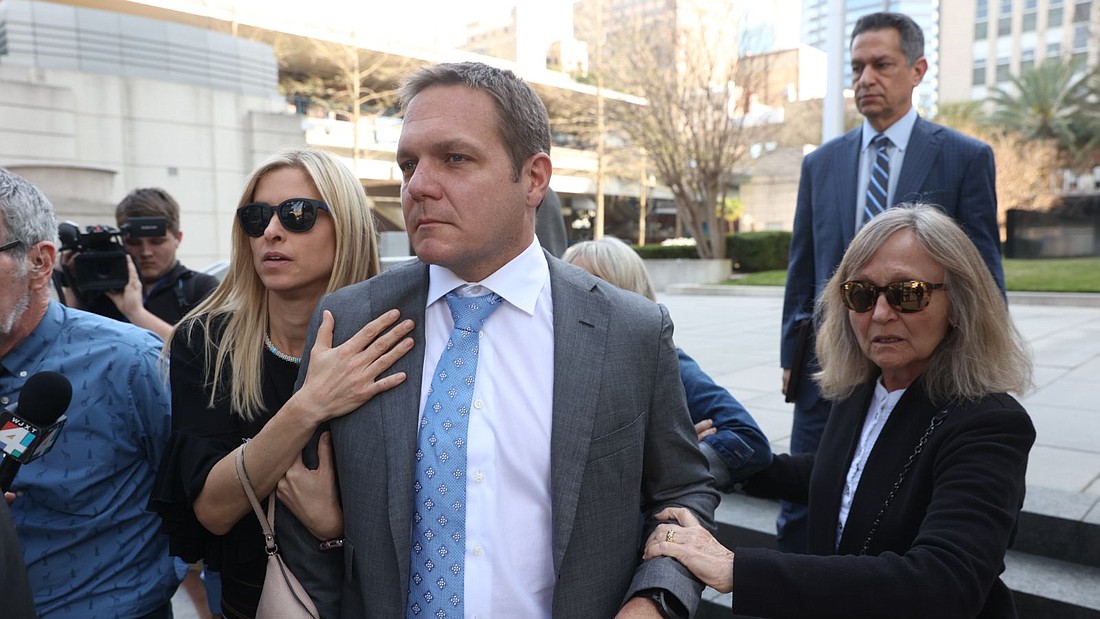
The two juries in the criminal trial of former JEA executives Aaron Zahn and Ryan Wannemacher found former CEO Zahn guilty and former CFO Wannemacher not guilty March 15, a climactic moment in a white-collar corruption scandal that comprised four years of investigations, indictments and court proceedings.
Both defendants were charged with conspiracy and wire fraud, with the government alleging that they schemed to pocket tens of millions of dollars of undeserved bonuses from a sale of the city-owned utility.
The juries, one for each defendant, found Zahn guilty of both charges and Wannemacher not guilty of both.
Sentencing for Zahn, CEO of JEA from 2018 through early 2020, is scheduled for 9 a.m. June 18. He faces a sentence of up to 25 years in prison for the conviction.
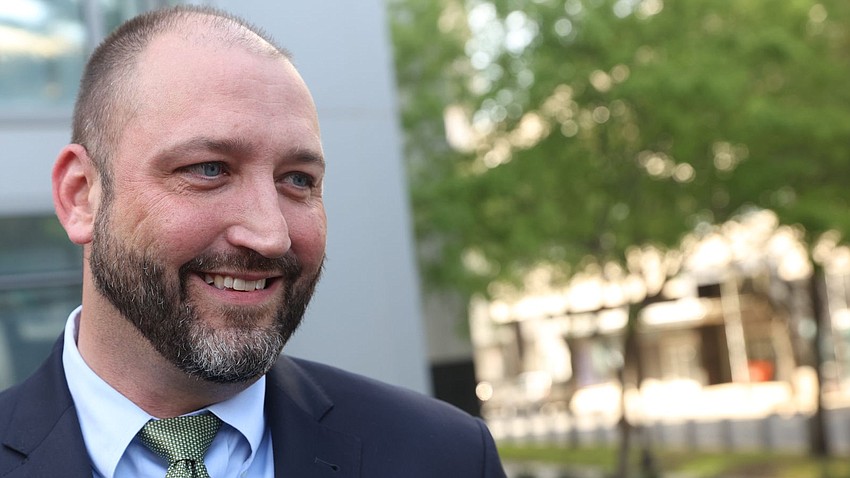
The verdicts were read about 4:45 p.m. when the Wannemacher jury returned with its verdict after more than 12 hours of deliberation that began March 14.
The Zahn jury reached its verdict March 14, but Senior U.S. District Judge Brian Davis sealed it until the Wannemacher verdict was returned.
Explaining his decision to read the verdicts simultaneously, Davis raised the possibility that unsealing the first jury’s verdict could result in the second jury hearing about the decision and being influenced by it.
Wannemacher walked away from the Bryan Simpson U.S. Courthouse smiling and laughing, with his wife and defense attorneys by his side.
“I’m going home,” he said. “I’ve got kids, I’m ready to go home. It’s my son’s birthday on Tuesday.”
Zahn, wearing a light gray suit with a white shirt and light blue tie, sobbed loudly as Davis thanked the Wannemacher jurors for their service. Zahn and his attorneys declined to comment as he left the courthouse.
‘That finishes it’
Assistant U.S. attorney Tysen Duva, the lead prosecutor in the trial, said the government accepted both verdicts.
“We feel like justice has been done,” he said. “The system worked.”
Duva called the JEA scandal and ensuing prosecution a “huge event for our history.” He said the government would pursue no further prosecutions in the case.
“This case is over. This finishes it,” he said.
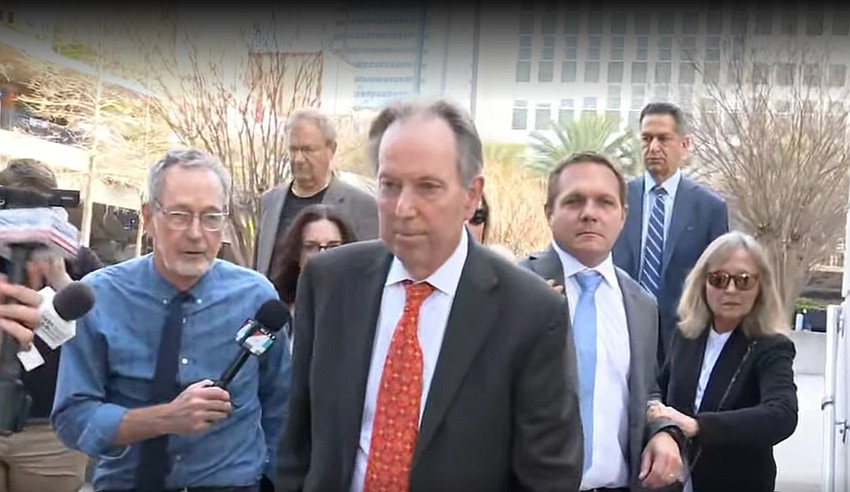
The trial was held two blocks southwest of the former JEA headquarters building where Zahn became the city’s highest-paid employee in 2019 with a salary of $520,000. Wannemacher wasn’t far behind him on the list, drawing a salary of $369,262.
Their fortunes began to change in late 2019, when a report by the City Council auditor showed that the payouts from an incentive plan that had been approved by the JEA board in July of that year were exponentially higher than initially believed.
The report led to the firing of Wannemacher in December, the firing of Zahn in January 2020 and, two months later, indictments against the two.
Government prosecutors alleged that the plot perpetrated by Zahn and Wannemacher involved deceiving the board into approving an employee incentive plan and initiating a process to potentially sell the utility. The sale, prosecutors and auditors said, would have triggered hundreds of millions of dollars for distribution across the pool of the incentive plan’s participants.
During the same meeting in which it authorized staff to implement the incentive plan, the board also approved the potential privatization of JEA.
In a special meeting December 24, 2019, weeks after the auditor’s report was released and a special council committee held meetings to investigate the findings, the board rescinded the plan and halted the sale process.
No bonuses were paid, and today JEA remains city-owned.
Incentive plan
During the trial, four of the board members from 2019 testified that they believed the incentive plan would pay out $3 million to $4 million for the pool of participants, which could have numbered more than 2,000.
The plan involved offering JEA employees stock-like “performance units” whose value would be tied to the financial performance of the utility.
The government presented its case over three weeks from a witness list that included the city’s former Chief General Counsel Jason Gabriel, members of the Council auditor’s office and attorneys who consulted with JEA about the potential sale.
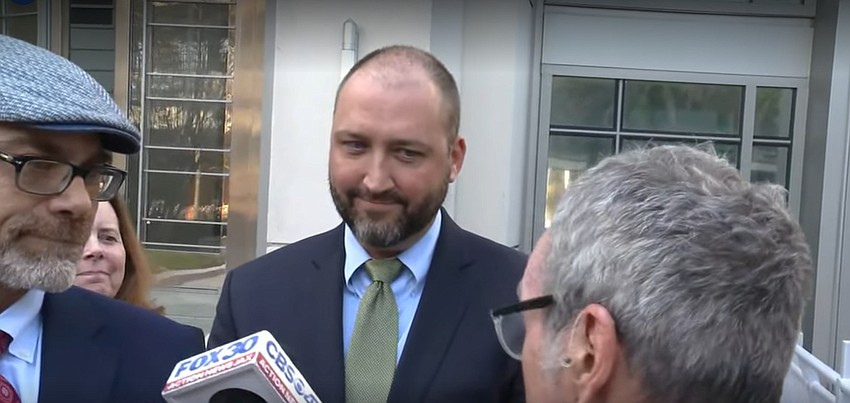
The defense’s case lasted one afternoon and part of one morning. The two defense teams put on one witness between them, an expert witness accountant who testified in the Zahn case.
The defense contended that no conspiracy occurred, with Zahn’s attorney, Eddie Suarez, noting in his closing argument that the government’s thousands of pages of documents in the case did not include a single email, text message or phone message showing plotting by Zahn and Wannemacher.
Throughout the trial, Zahn and Wannemacher appeared calm. Zahn chatted with family members and friends in the gallery on several occasions, and spoke in familiar terms with reporters who had covered the case for years.
The two dressed in suits and ties throughout, both looking like the C-suite executives they once were.
Wannemacher, his wife and defense attorneys made small talk and laughed with Duva occasionally while waiting for the jury to enter the courtroom. On March 15, they could be overhead from the gallery chuckling as Felman described how he had eaten a big lunch the day before and fallen asleep with his head on a table, waking up to find a red mark on his forehead. In a different setting, the scene might have resembled a group of professionals chatting before a board meeting rather than a defendant in federal court speaking with a prosecutor who was trying to imprison him for 25 years.
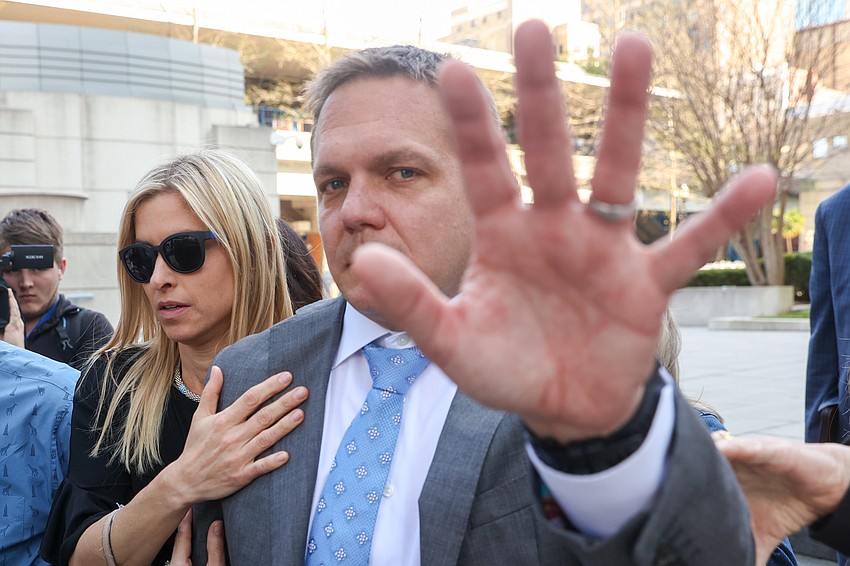
Verdict reaction
The verdicts drew statements from JEA, Mayor Donna Deegan’s office and City Council President Ron Salem, among others.
“As has been said, this was one of the greatest schemes to defraud the taxpayers in the history of Jacksonville,” Deegan’s statement read.
“During the trial, we heard a lot about the type of behavior that we don’t want to see in our government ever again. JEA will always stay in public hands as long as I’m mayor.”
Salem’s statement included praise for the special council committee.
“The work done by the (Council) Special Investigatory Committee on JEA Matters over numerous meetings and thousands of pages of documents is to be commended,” it read.
JEA stated that the “actions of a former CEO do not reflect our organization or our values.”
“We appreciate the efforts of all who assisted in delivering this outcome, and we look forward to putting this matter behind us while we focus on moving forward to serve our community,” the statement read.
The FBI issued a statement from Special Agent in Charge Mark Dargis saying the bureau is “fully committed to ensuring that anyone who violates the public’s trust is held accountable.”
“As a taxpayer, you are entitled to decisions based on the public’s best interest, and we take very seriously our responsibility to investigate and aggressively pursue individuals who attempt to defraud publicly funded institutions in a selfish effort to line their pocketbooks,” the statement read.